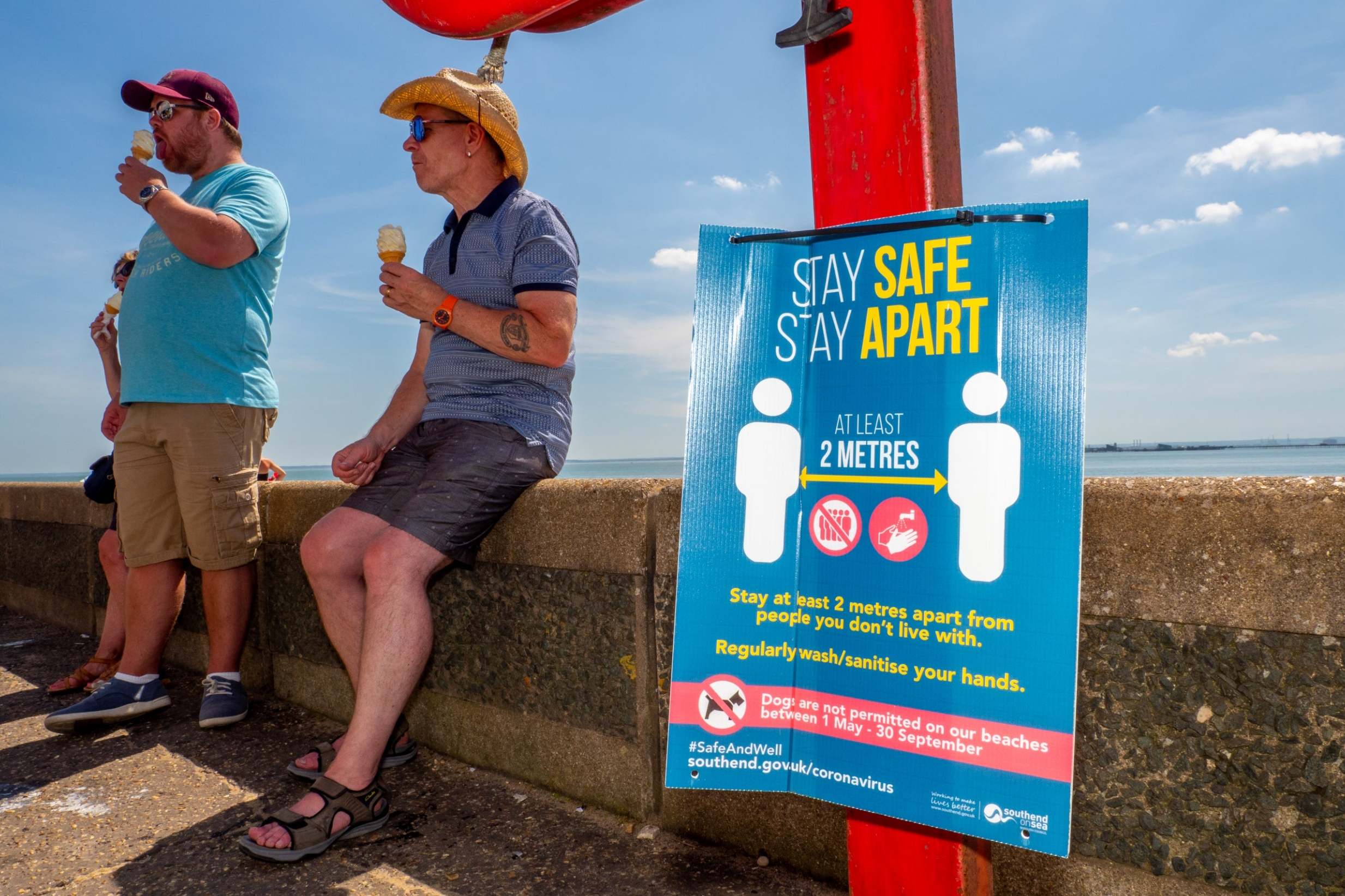Can the government really afford to ‘save our summer’?
The economy cannot be bailed out by pints alone, writes Sean O'Grady


Christ!” is reportedly what the prime minister exclaimed when he was told that more than 3 million jobs will be lost in the hospitality trade unless lockdown is eased this month.
The warning was issued during a meeting with Alok Sharma, the business secretary, and Rishi Sunak, the chancellor, but the shocking figure should probably have come as no surprise to Boris Johnson.
Everyone agrees that the British economy is probably already in recession (being two successive quarters of “negative growth”) and is undergoing the sharpest slump in about 300 years.
A gang of ministers – Sharma, Sunak, Michael Gove, Grant Shapps and Robert Jenrick – comprise an informal “save our summer” group, lobbying for an accelerated exit from lockdown, including reducing the two-metre social distance rule to one metre. Few pubs, cafes and restaurants, cinemas, theatres and other venues are economically viable under the two-metre rule, even if free to open.
Any faster release from lockdown will, however, face firm resistance from Matt Hancock, the health secretary, as well as the likes of Chris Whitty, the chief medical adviser, and the Sage committee, unwilling to approve a reduction in the coronavirus threat level unless there is a surprise drop in infection levels and the R rate, and an improved track and trace infrastructure. Devolved first ministers and city mayors such as Nicola Sturgeon and Andy Burnham will also oppose rapid changes.
But moving slowly will cost jobs and livelihoods and life chances in a wider sense. According to the arms-length Office for Budget Responsibility (OBR), the British economy will generate about 13 per cent less in 2020 than in 2019; a “normal” severe recession might see the sort of peak annual contraction experienced in the financial crisis in 2009 – around 4 per cent.
Unemployment next year, according to the OBR coronavirus “scenario”, will hit 10 per cent, double the pre-Covid rate.
The risk in such a situation is that the expected rapid “bounce back” in activity – the “V-shape” recovery – becomes ever less likely the longer the recession continues.
Consumer confidence, shaken by recent events, furloughing, pay cuts and the fear of unemployment, could remain depressed, creating a downward spiral on spending and output. Workers on the dole may find their morale and skills deteriorate, as it will be harder to find a new job.
School and university leavers will find prospects especially tough. Such consequences for the labour market can be very long-lasting, what economists term as “scarring”.
Meanwhile, businesses that survive will carry a larger debt burden and have less to invest in new equipment, technology and training.
Public spending and borrowing can support the economy in such circumstances, but there are limits. Public borrowing this year will be about £300bn, pushing national debt towards 100 per cent of annual GDP, the highest in decades.
The chancellor, reflecting the traditional “Treasury view”, will have told the prime minister that the unprecedented, impressive and effective package of measures to protect jobs cannot be funded indefinitely.
Even if it could, it would endanger key aspects of the government’s programme and manifesto commitments, including; the promise not to raise the main tax rates; “levelling up” the regions; protecting the NHS; “fixing” the care crisis; and huge infrastructure projects.
The possible disruption caused by Brexit at the year’s end would add to the economic headaches.
A permanently weakened UK economy and protracted slump would damage standards of living and, politically, the chances of the government being able to deliver its promises and win another term of office. Its ratings have taken a battering over the Cummings affair and years of enforced austerity would damage its credibility still further.
This might be particularly true of the north and Midlands where the Conservatives made spectacular gains at Labour’s expense at the last election. Importantly too it would bring a defeat in any referendum on Scottish independence that much nearer.
With the bizarre exception of the inward travel quarantine policy, which makes no sense on scientific or economic grounds, ministers are increasingly being driven by economics rather than epidemiology. Elections are traditionally won and lost on “the economy, stupid”, and the Brexit general election of 2019 was something of an exception to that rule.
Johnson and colleagues such as Dominic Cummings have an ambitious programme of radical change for Britain in the 2020s, but not much of it will be achieved with a stagnant economy and a sceptical electorate. Hence the rush to open the pubs in time for (it is rumoured) 22 June.
If, however, a second wave of the pandemic induces a crisis in the NHS, fresh panic and forces a second lockdown it will be more a case of drinking in the last chance saloon.
Join our commenting forum
Join thought-provoking conversations, follow other Independent readers and see their replies
Comments